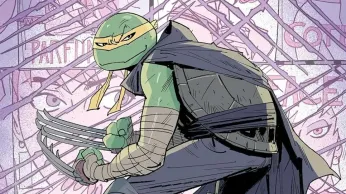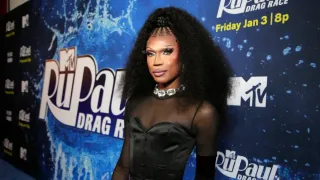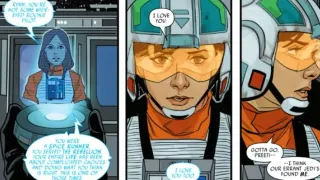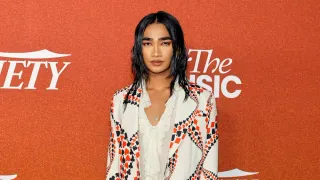
4 hours ago
Right-Wing Uproar as Queer Teenage Mutant Ninja Turtle Jennika Takes the Spotlight
READ TIME: 2 MIN.
A new wave of right-wing backlash has erupted following renewed attention to Jennika, the fifth Teenage Mutant Ninja Turtle and the franchise’s first openly queer hero. While Jennika has been part of the TMNT comics since 2015, her bisexuality and her relationship with the mutant musician Sheena have come under fire from conservative commentators after she took on a lead role in the ongoing "Nightwatcher" comic series .
Jennika’s journey into the TMNT universe began as a human member of the villainous Foot Clan. After a dramatic transformation—triggered by a life-saving blood transfusion from Leonardo—she joined the turtles as their fifth member. Her bisexual identity was first revealed in "Teenage Mutant Ninja Turtles" #93 (2019), marking a milestone for LGBTQ+ representation in the long-running comic series .
In recent days, right-wing media personalities and social media users have voiced their outrage over Jennika’s prominent bisexual identity, with some accusing the franchise of "pandering" or "politicizing" children’s entertainment . Hashtags criticizing the character trended briefly as commentators questioned the necessity of LGBTQ+ representation in a classic series. Critics lamented what they described as the replacement of an "iconic" character—Raphael in his vigilante Nightwatcher guise—with Jennika, though this narrative overlooks both the character’s established history and the franchise’s tradition of evolving its cast .
Despite the backlash, supporters have rallied behind Jennika, emphasizing the importance of LGBTQ+ characters in mainstream comics. Many fans and advocacy groups argue that her presence offers meaningful representation to queer youth and diversifies the cultural landscape of superhero fiction .
Jennika’s narrative has been widely praised by LGBTQ+ advocates for its thoughtful and authentic handling of bisexuality. Her relationship with Sheena Murphy, a mutant pig who leads the punk band After the Bomb, is depicted with nuance and care, avoiding stereotypes and centering emotional depth . These storylines have been credited with opening up new conversations among TMNT’s diverse fanbase, as well as offering affirming representation for readers who may have previously felt unseen in the superhero genre .
IDW Publishing, which produces the current TMNT comics, has stood by the creative team’s decision to foreground Jennika, framing it as a natural evolution for the franchise and a reflection of the real-world diversity of its audience . The publisher has also pointed to a broader trend in comics and animation, with recent TMNT adaptations—such as *Mutant Mayhem*—introducing more varied and inclusive characterizations, including gender-swapped villains and a greater emphasis on the lives of mutant characters .
For many LGBTQ+ readers, Jennika’s journey from outsider to integral team member is both inspirational and relatable. Her struggles with identity, belonging, and community mirror the experiences of countless queer individuals who have found family and acceptance in unexpected places . Fans have launched social media campaigns to celebrate Jennika’s impact, with artists and cosplayers sharing tributes across platforms.
As the discourse continues, the creative team behind TMNT has reaffirmed their commitment to telling diverse stories. "Nightwatcher" issues 1–7 are currently on sale, with Jennika’s arc promising to further explore the intersections of heroism, identity, and chosen family . If the current response is any indication, Jennika’s presence in the TMNT universe is set to remain a powerful symbol of visibility and inclusion for years to come.






